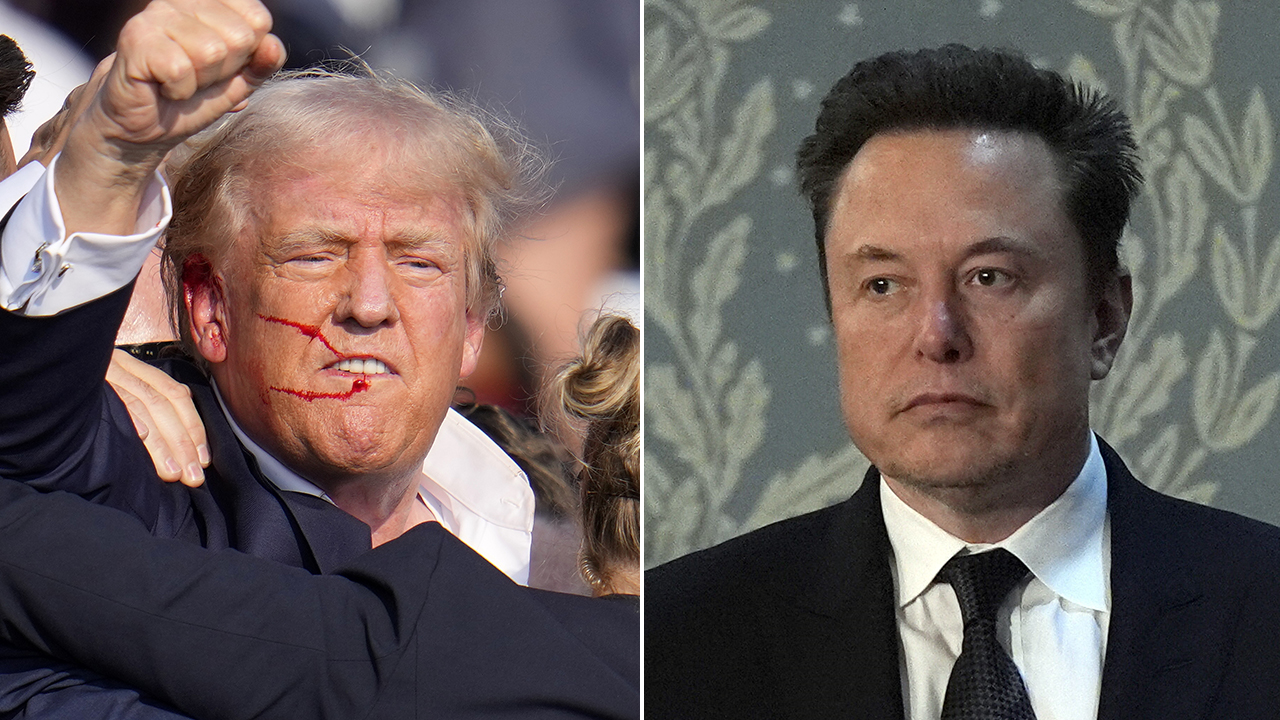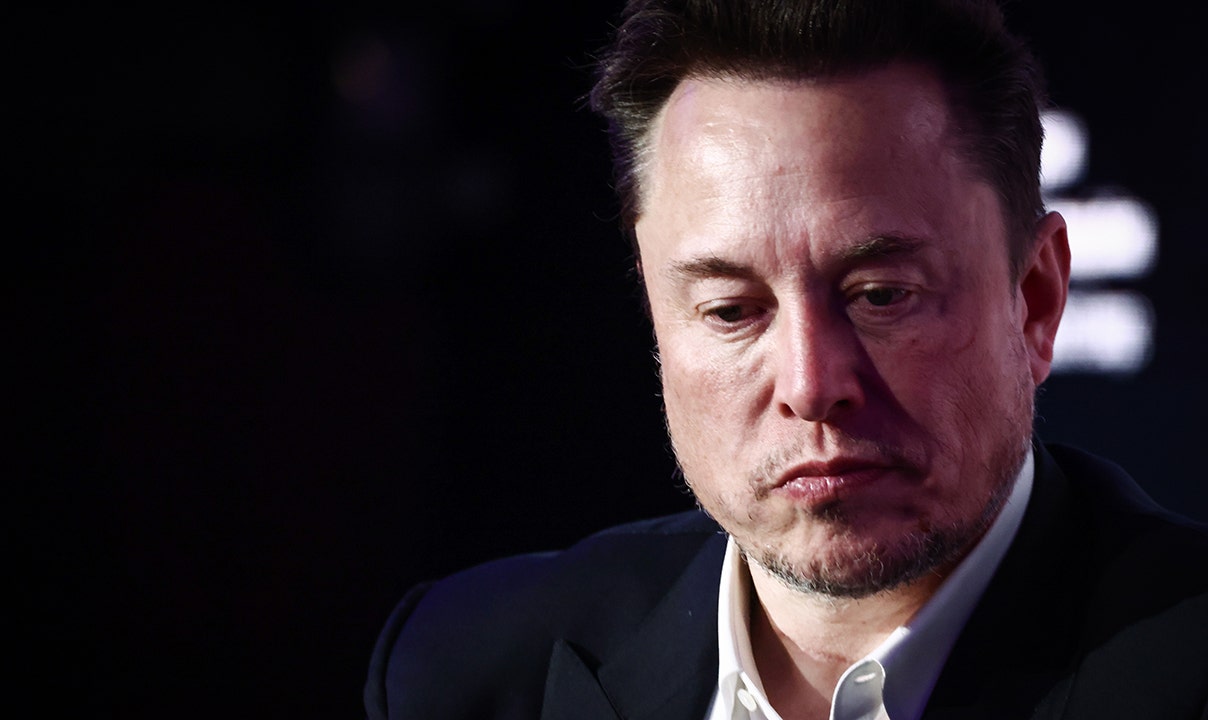Elon Musk & The Antichrist? Decoding The Conspiracy Theories
Could the visionary behind electric cars and space travel, the man reshaping our world, actually be a figure from ancient prophecy? The question, seemingly plucked from the pages of a dystopian novel or the depths of a theological debate, has surprisingly taken root in the modern consciousness: is Elon Musk, the tech titan, the Antichrist?
Elon Musk is not just another billionaire. He is a disruptor, a futurist, a man who has built an empire on the back of audacious ideas and relentless execution. From revolutionizing the automotive industry with Tesla to dreaming of colonizing Mars with SpaceX, Musk has captured the imagination of millions and simultaneously drawn the ire of critics and conspiracy theorists alike. This article delves into the swirling rumors and the compelling, often contradictory, narratives that surround the figure of Elon Musk, seeking to understand the origins of the claims and assess their validity.
Let's be clear: the purpose here is not to definitively label anyone. Instead, this exploration seeks to unpack the complex web of claims, interpretations, and anxieties that have contributed to the controversial theory. This means wading into the realms of biblical interpretation, speculation, and the mans own pronouncements to provide a balanced overview of the situation.
- Imskirby Dog Incident Insights Lessons Responsible Pet Ownership
- Ssh For Raspberry Pi On Windows Setup Secure Remote Access
| Category | Details |
|---|---|
| Full Name | Elon Reeve Musk |
| Born | June 28, 1971, Pretoria, South Africa |
| Citizenship | South African, Canadian, American |
| Education | University of Pennsylvania (B.A. in Physics, B.A. in Economics) |
| Key Positions |
|
| Net Worth (as of October 26, 2023) | Approximately $240 Billion USD (Source: Forbes) |
| Significant Achievements |
|
| Links | Tesla Official Website |
The notion that Elon Musk is the Antichrist is more than just a fleeting online trend; it is a reflection of broader cultural anxieties. How did this particularly outlandish theory even take root? The genesis of the claims can often be traced to a confluence of factors: his public comments, and certain interpretations of biblical texts by religious figures and others.
Delving deeper, it's important to grasp the core of the Antichrist concept as it exists in Christian theology. Often portrayed as an individual who will deceive the world and lead people away from God. His ventures in artificial intelligence and space exploration have been seized upon as evidence that he aligns with this description. His use of social media, and the pronouncements he makes, have fuelled the fire.
The core of this debate must include a consideration of Musks own religious views. The man is notoriously private, but also known for his willingness to engage in thoughtful discussions. He has stated that he does not adhere to any specific religion. Acknowledging this atheistic stance provides a necessary context. His criticism of traditional religious institutions for their perceived resistance to innovation and progress is well-documented.
- 7starhd Movies Your Guide To Streaming 2024 Updated
- Valerie Walker Biography Inspiring Story Success Starts Now
Religious scholars and theologians have entered the debate. Many find it to be a distorted reading of scripture. Professor Sarah Johnson of Stanford University has pointed out that such connections are, in her view, an oversimplification of dense Biblical texts.
Musks involvement in artificial intelligence has become a focal point for those who believe he may be the Antichrist. Critics argue that this technology could result in a hyper-intelligent entity that could control humanity. Musk's vision is often painted as a potentially dark vision for the future of mankind. Is there any veracity to this claim?
The man himself has voiced concerns about the potential dangers of AI, calling it one of the most substantial existential threats to human existence. Rather than simply pushing forward with research into the field of artificial intelligence, he has advocated for, and invested in, responsible development and regulation of the technology. His critics argue this could all be a smokescreen, but his words indicate he wants to mitigate the risks.
Neuralink, Musks brain-computer interface company, has ignited heated discussions. This groundbreaking technology promises to cure neurological disorders. But its the potential of merging the human brain with machines, and the ethical implications of such a concept, that have fueled some of the more speculative claims. Could this technology be the mark of the beast, as some have suggested? This kind of rhetoric serves as a reminder that humanity has wrestled with the implications of new technologies for thousands of years.
Space exploration is another major area of focus. The drive to colonize Mars, spearheaded by SpaceX, has been seen by some as a modern-day Tower of Babela symbol of human arrogance and a challenge to divine authority. What is the context of this? Is the colonisation of Mars a project to promote human hubris? Or is it another endeavour to keep humanity safe?
Musk has stated his ultimate goal is to ensure the survival of humanity. He believes that becoming a multi-planetary species is essential to surviving global catastrophes. It is difficult to entirely dismiss his logic. What does this mean for the future of mankind?
Biblical scholars have added their voices to the discussion. Dr. John Smith has stated that colonizing Mars doesn't necessarily conflict with Christian teachings. Space exploration might even be seen as fulfilling Gods command to expand our knowledge of the universe.
Elons well-known Twitter account is part of the story. His willingness to share his opinions, and the humour he sometimes employs, have led to outrage. His propensity for mockery or for jokes about apocalyptic scenarios certainly attract attention. His irreverence is well-known. How does his social media presence contribute to this perception?
Social media is a powerful tool, and Musk has shown a clear understanding of how to use it. The ease with which he shares his thoughts, and the attention they attract, are well-documented. While many see his social media presence as a source of entertainment, others have viewed it with suspicion. Is he being misunderstood, or is he trying to manipulate the world?
Conspiracy theories regarding Elon Musk are not new. Throughout the years, he has been accused of a vast array of offences, from fabricating the moon landing to being a lizard person. The Antichrist theory is simply the latest entry in a long list of wild assertions. But what drives individuals to demonize an individual trying to make the world a better place?
Psychologist Dr. Emily Chen states that these theories are typically born of a lack of trust in the institutions and authority figures. In a world awash in readily available, though not always accurate, information, its easy to fall down the rabbit hole of misinformation and speculation.
Theories of this nature are often the product of anxieties. People are more inclined to believe in conspiracies when they feel uncertain. By projecting fears onto a figure such as Musk, they can find some semblance of meaning in a chaotic world.
The question of whether Elon Musk is the Antichrist is, in the end, likely best understood as an online meme. While its always important to examine the actions of powerful people, its also important not to let fear and misinformation cloud judgement. His accomplishments in science and technology have the potential to change the world, and these are accomplishments worth celebrating.
The Antichrist theory is a reflection of our collective anxieties. Lets look instead to how we can contribute to a better future. Musk's work has the potential to make the world a better place. Lets focus on the positive and work together to create a brighter tomorrow.



Detail Author:
- Name : Mr. Murphy Kihn
- Username : kautzer.ocie
- Email : osimonis@hotmail.com
- Birthdate : 1979-06-12
- Address : 34038 Koss Grove Suite 721 Schmittport, MD 86859
- Phone : +15414589585
- Company : Leuschke, Quigley and Becker
- Job : State
- Bio : Non optio ut modi id nihil officiis. In quam aut autem quod aliquam. Corporis illum aut assumenda autem et. Qui cupiditate quia in quo.
Socials
facebook:
- url : https://facebook.com/yazmin8768
- username : yazmin8768
- bio : Soluta est aut consequuntur aut beatae.
- followers : 1623
- following : 792
twitter:
- url : https://twitter.com/yazmin4169
- username : yazmin4169
- bio : Est dolorum quia et debitis saepe. Et qui fugit labore nobis totam. Quo asperiores voluptatibus eos soluta nulla aliquam.
- followers : 956
- following : 237